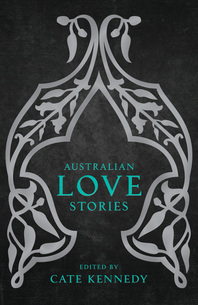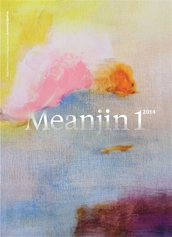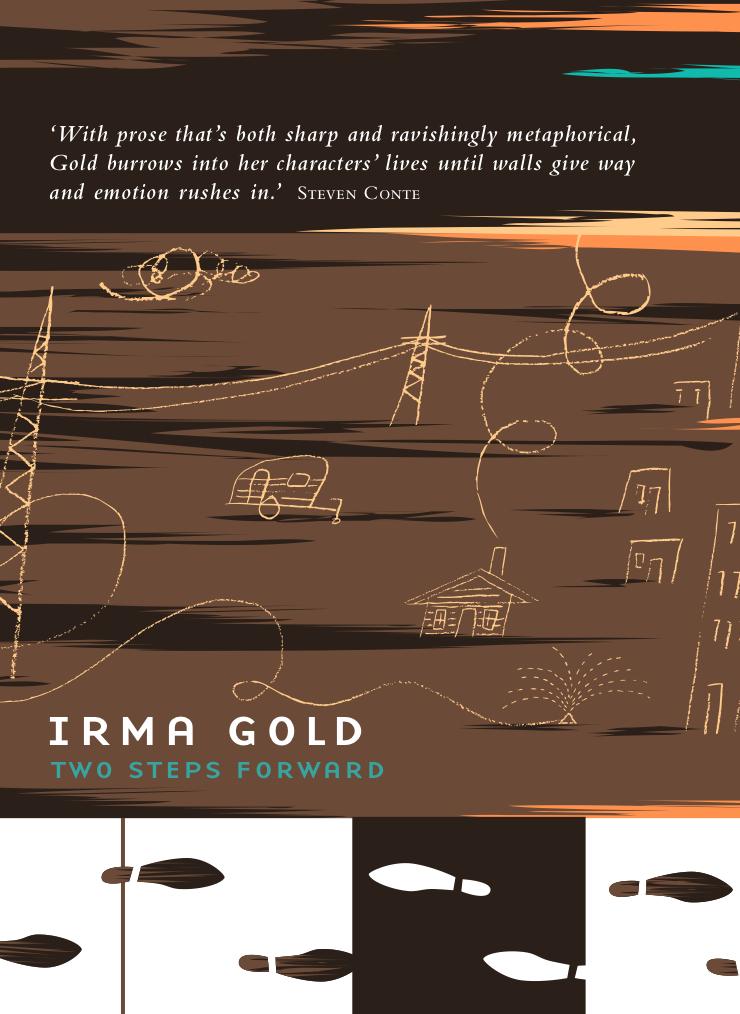 With the release of my debut collection of fiction I’ve been talking about the short story a lot and it’s got me thinking. To my mind the short story is undervalued. There are a plethora of short fiction competitions and a handful of literary magazines that will publish them, but a collection in book form? Unless you’re Tim Winton forget it. Nam Le’s debut collection The Boat (2008) is one notable exception. It won every award imaginable and became an international bestseller. Then A Visit from the Goon Squad by Jennifer Egan won this year’s Pulitzer Prize for Fiction. Writers were no doubt hoping all this was a sign of changing times, a sign that the short form was gaining greater recognition. But even Marion Halligan, one of our most celebrated authors with 20 books to her name, recounts how when her latest short fiction collection, Shooting the Fox, landed on her agent’s desk she phoned her up and groaned, ‘Oh, Marion. Short stories?’
With the release of my debut collection of fiction I’ve been talking about the short story a lot and it’s got me thinking. To my mind the short story is undervalued. There are a plethora of short fiction competitions and a handful of literary magazines that will publish them, but a collection in book form? Unless you’re Tim Winton forget it. Nam Le’s debut collection The Boat (2008) is one notable exception. It won every award imaginable and became an international bestseller. Then A Visit from the Goon Squad by Jennifer Egan won this year’s Pulitzer Prize for Fiction. Writers were no doubt hoping all this was a sign of changing times, a sign that the short form was gaining greater recognition. But even Marion Halligan, one of our most celebrated authors with 20 books to her name, recounts how when her latest short fiction collection, Shooting the Fox, landed on her agent’s desk she phoned her up and groaned, ‘Oh, Marion. Short stories?’
As Halligan says, ‘Publishers don’t think much of them, though they may be changing their minds.’ Craig Cormick who’s published over 100 stories and eight collections does believe publishers are ‘starting to value (or re-value) short stories again’. Just five years ago when he was working for Ginninderra Press on their Mockingbird imprint, dedicated to producing short fiction collections, he felt ‘the short story in Australia was on life-support’. ‘It was obvious that in places like the Queensland Premiers’ Steele Rudd Award [for a collection of short stories, the only one of its kind in Australia] there were not the number of contenders they were getting in other categories. During that time Mockingbird had several collections shortlisted for the award.’
Read More »The short of it
The recent announcement of this year’s Queensland Premier’s Awards proves Cormick’s point that short story collections are regaining some favour. The shortlist includes a more diverse range of publishers: Patrick Holland for The Source of the Sound (Salt Publishing), Amanda Lohrey for Reading Madame Bovary (Black Inc.), Wayne Macauley for Other Stories (Black Pepper) and Emmett Stinson for Known Unknowns (Affirm Press). But as Cormick says ‘there is still a long way to go’. Note, for instance, that these four publishers are all small independents who are willing to take risks to publish books they are passionate about.
Martin Hughes at Affirm Press knows all about risk and passion. When he announced his Long Story shorts series, six collections of short fiction by new writers, everyone from the commercial side of things told him he was ‘absolutely bonkers’. Of course the initiative was highly valued by new writers because it is so difficult to get a collection published before having a number of runs on the board. As Hughes says, ‘publishers are not interested in short story collections, unless you’re Nam Le or already a celebrated novelist and they just want to repackage your earlier work.’ Little wonder then that they were flooded with 450 manuscripts. Fortunately for me my manuscript, Two Steps Forward, was selected as the series’ swan song and has just hit shelves. And fortunately for Affirm the series has garnered critical acclaim. Among other accolades, Long Story Shorts author Gretchen Shirm was named Sydney Morning Herald Best Young Novelist of the Year and Emmett Stinson is up for this year’s Steele Rudd Award. The illustrator and designer of the series, Dean Gorrisen, also picked up Silver at the Illustrators Australia Awards 2011 for the first three covers in the series.
So what’s to love about short stories? For Hughes ‘it’s the vitality of short fiction that excites me most; how it forces you to imagine what happened before and after, and how a story gets precisely the number of words it needs rather than approximately the number of words it needs to find a place in a bookstore and be commercial’. And for Halligan it’s the form’s ‘brevity, its elegance, its subtlety, the fact that you have to make such drastic choices about what to put in, what leave out. I think it is like a poem, in that it is much larger than the sum of its parts. I like the small window it gives on to a much larger world.’
The short story is also the ideal form for our fractured, time-poor modern existence. Nigel Featherstone and Alec Patric have been capitalising on this with their online literary journal, Verity La. It is an unexpected pleasure to be eating breakfast or enjoying an idle cup of tea when a new short story arrives in my phone via Verity La. The pleasure of these ‘lovely little distractions’, as Featherstone calls them, is that ‘the work is coming to readers; readers don’t have to make a conscious decision to go and search this stuff out’. He adds, ‘I sometimes get frustrated with writers who whinge and complain about publishers and readers not valuing short stories…Verity La is a way of saying, as writers, we value short stories so how can we get them to readers; in a way it’s writers doing it for ourselves.’
Halligan goes further: ‘A lot of people say they love reading short stories, but don’t actually do much about it—don’t subscribe to magazines, etc. Years ago Elizabeth Webby [former editor of Southerly] said if everybody who tried to get published in Southerly took out a subscription the magazine would have a large and viable circulation. There are few outlets and those that exist are disappearing fast, for example Heat.’ And just days ago Island magazine announced that after 32 years the Tasmanian Government has withdraw its funding and the publication’s future is uncertain.
So if you love the short form why not go out today and buy a collection or subscribe to a literary magazine or check out an online journal like Verity La. As Cate Kennedy says, ‘the short story is alive, part of our collective national voice, and a form to be treasured’. Viva la short story!
Thanks to Craig Cormick, Nigel Featherstone, Marion Halligan and Martin Hughes for their contribution to this conversation, and to Dumbo Feather for some of the quotes from Hughes. This post was first published on Overland literary journal’s blog here.
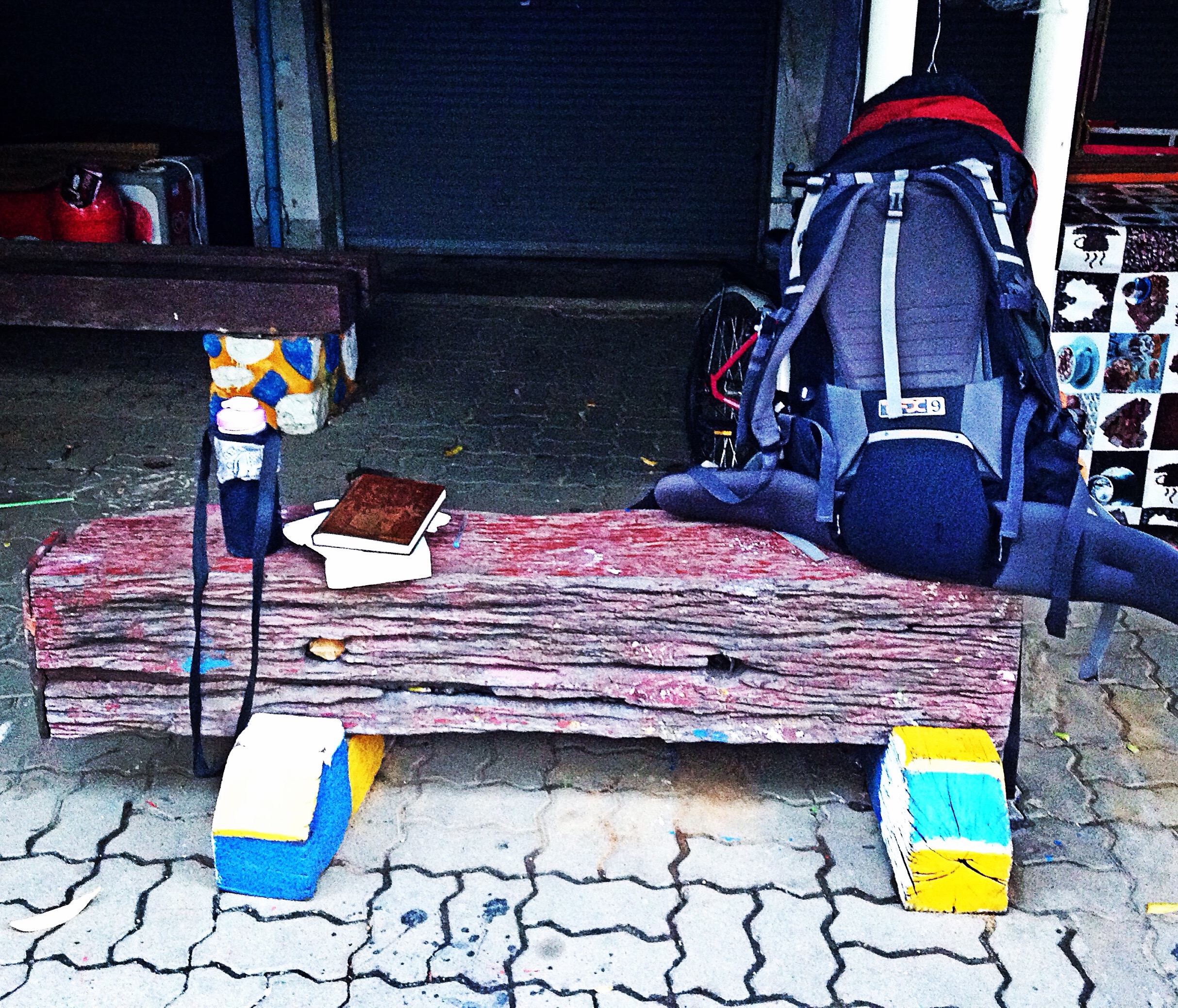 In 2016, at the end of a solo three-week trip through Thailand, I was sitting on this bench at Kanchanaburi station when I began scrawling down a story in my notebook. Writers are always asked where their ideas come from and it’s the most difficult question to answer because, for me at least, they have complex and elusive origins. In this particular moment the motif of the train line struck me, but that’s as much as I can explain. Where the characters and their story came from I don’t know. But as Paul Murray says, ‘When the right idea comes along, it’s like falling in love.’ That’s how I felt with this story, even though my characters are falling out of love.
In 2016, at the end of a solo three-week trip through Thailand, I was sitting on this bench at Kanchanaburi station when I began scrawling down a story in my notebook. Writers are always asked where their ideas come from and it’s the most difficult question to answer because, for me at least, they have complex and elusive origins. In this particular moment the motif of the train line struck me, but that’s as much as I can explain. Where the characters and their story came from I don’t know. But as Paul Murray says, ‘When the right idea comes along, it’s like falling in love.’ That’s how I felt with this story, even though my characters are falling out of love.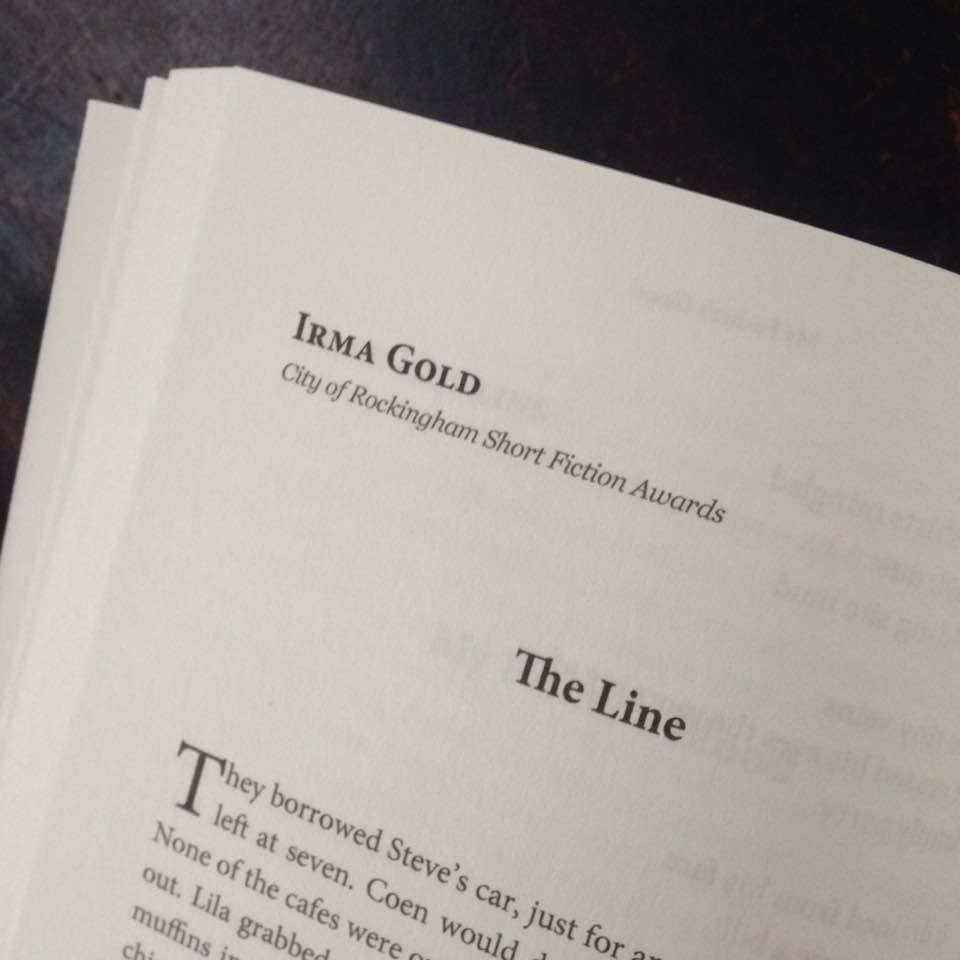 I tightened and edited the piece, by now called ‘The Line’, and gave it to my short story group who made helpful comments like ‘hope you didn’t have an affair as research’. (They may also have given some more useful feedback.) I rewrote the ending more times than I can count before I felt I’d struck just the right note. And then I sent the thing off to the City of Rockingham Short Fiction Awards. I rarely enter literary competitions these days, but the brilliant short story writer Laurie Steed was judging and there was a decent cash prize on offer. Needless to say I was thrilled when ‘The Line’ won.
I tightened and edited the piece, by now called ‘The Line’, and gave it to my short story group who made helpful comments like ‘hope you didn’t have an affair as research’. (They may also have given some more useful feedback.) I rewrote the ending more times than I can count before I felt I’d struck just the right note. And then I sent the thing off to the City of Rockingham Short Fiction Awards. I rarely enter literary competitions these days, but the brilliant short story writer Laurie Steed was judging and there was a decent cash prize on offer. Needless to say I was thrilled when ‘The Line’ won.




